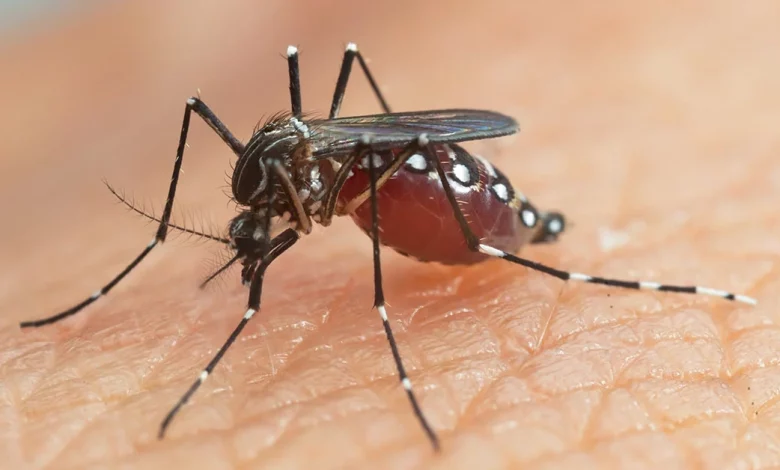Daily Current Affairs for UPSC
Zika Virus found in mosquitoes in Karnataka’s
Syllabus: Health[GS Paper-2]

Context:
- After the discovery of the Zika virus in a mosquito pool in Chikkaballapura, the Karnataka Health Department has implemented precautionary measures.
- The state unit of the National Institute of Virology in Bengaluru has verified the presence of the Zika virus in mosquito samples obtained from the region.
Zika Virus in Karnataka:
- The health department in Karnataka is being extra cautious after the Zika virus was discovered in a mosquito in Chikkaballapur district.
- The virus was detected in a sample taken from Talakayalabetta village in Sidlaghatta Taluk, which is approximately 60 km away from Bengaluru, in August.
- As a result, the health department has issued a warning in the Talkaebetta region where the sample originated from.
- The health department has released a statement to address the current Zika virus situation. Individuals with specific symptoms should send their serum samples to the NIV for testing.
- Pregnant women in affected areas should have their serum and urine samples collected and tested.
- Recent deliveries should be monitored for congenital anomalies. Private healthcare providers need to be educated about Zika Virus Disease.
- Aedes mosquito surveys, source reduction, and fever surveys should be intensified in both urban and rural areas.
- A 5-kilometre ‘Containment Zone’ should be designated around Zika-positive cases, with daily visits by health staff and ASHA workers to check for Aedes larvae and conduct fever surveys.
What is Zika Virus?
The Zika virus is a virus transmitted by mosquitoes that was first discovered in Uganda in 1947. It is primarily spread through mosquito bites, but can also be transmitted through sexual contact, from mother to baby during pregnancy, and through blood transfusions.
About Zika virus Disease:
-
- Zika Virus Disease (ZVD) is a contagious illness caused by the Zika virus and is mainly spread through the bites of infected Aedes mosquitoes.
- It typically causes mild flu-like symptoms, but it became a global concern because of its ability to cause severe birth defects in babies born to infected pregnant women.
- Preventative measures include controlling mosquito populations and using insect repellent.
- Although the outbreak reached its highest point in 2016, continued monitoring is important as Zika still poses a threat in areas with Aedes mosquitoes.
- Symptoms: Zika Virus Disease (ZVD) is a contagious illness transmitted by infected mosquitoes.
-
-
- It usually results in mild flu-like symptoms, but it gained global attention due to its ability to cause severe birth defects in babies born to infected pregnant women.
- Preventive measures involve managing mosquito populations and using insect repellent.
-
- Treatment: As of my last update in January 2022, there is no specific antiviral treatment for Zika virus.
- In most cases, Zika is primarily a self-limited, mild disease, and treatment focuses on controlling symptoms.
- Individuals infected with Zika virus are generally advised to: To recover from the infection, it is important to get enough rest and stay hydrated.
- Taking over-the-counter pain relievers can help with fever and pain, but NSAIDs should be used with caution.
- It is also important to avoid mosquito bites to prevent the spread of the Zika virus.
- This can be done by using insect repellent, wearing long-sleeved clothing, and using bed nets.
Conclusion:
The Zika Virus has been occasionally reported in India. It can cause mild to severe illness and is primarily transmitted by Aedes mosquitoes. There was an outbreak in Rajasthan and Gujarat in 2018, but preventive measures and surveillance efforts helped control the situation.
Practice question:
Q. Identify the incorrect statement about Zika virus-
- Zika virus is transmitted by the same vector that spreads dengue virus.
- Zika virus belongs to herpesviridae which belongs to large family of RNA viruses.
- The first human cases of Zika viruses were detected in 1952 from Kerala and Karnataka states in India.
- None of the above.





.png)



